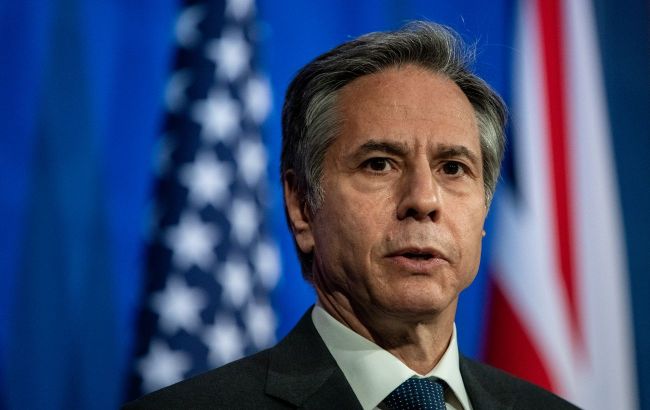Western countries outline principles for Syria's new government
 Photo: US Secretary of State Antony Blinken (Getty Images)
Photo: US Secretary of State Antony Blinken (Getty Images)
US Secretary of State Antony Blinken has completed his visit to the Middle East. The trip aimed to prevent Syria from slipping out of control after the sudden removal of Bashar al-Assad’s regime, according to the US State Department.
The US top diplomat held meetings in Jordan, Türkiye, and Iraq, seeking to shape Syria's future after Assad's rule by building consensus among regional partners and allies, whose interests often diverge.
Blinken secured the support of 12 foreign ministers from Arab League member states, Türkiye, as well as senior officials from the European Union and the United Nations. On December 14, they held an emergency meeting in the Jordanian port city of Aqaba.
In a joint statement on the situation in Syria, representatives from the countries and organizations:
- confirmed full support for the Syrian people in this critical moment of their history, aimed at building a more hopeful, secure, and peaceful future;
- expressed commitment to principles they believe serve the Syrian people's best interests, the region, and the world in this critical period. They believe the Syrians should lead and manage the transitional political process. It should lead to the creation of an inclusive, non-sectarian, and representative government through a transparent process based on the principles of UN Security Council Resolution 2254;
- emphasized support for the UN Special Envoy’s mandate and called on the UN Secretary-General to strengthen the UN's presence on the ground;
- reiterated full support for Syria's unity, territorial integrity, and sovereignty;
- stressed the importance of human rights, particularly those of women and minorities; the preservation of state institutions that serve the interests of the Syrian people and provide critical services; the protection of all foreign diplomatic facilities and personnel; the safety and secure destruction of chemical weapons stockpiles; ensuring access to regime prisons and facilities to hold perpetrators accountable, as well as clarifying the fate of missing Syrians and foreign nationals;
- reaffirmed full support for Syria's unity, territorial integrity, and sovereignty;
- highlighted that Syria finally has a chance to end decades of isolation. They pledged to support the Syrian people and work with them through this unprecedented transitional phase;
- emphasized the importance of combating terrorism and extremism, including preventing the resurgence of terrorist groups. Additionally, they demanded that Syrian territory no longer pose a threat to any country or serve as a haven for terrorists;
- reiterated their call for all parties to cease hostilities in Syria;
- demanded respect for Syria’s sovereignty, unity, and territorial integrity in accordance with the principles of the UN Charter from all parties.
The statement was published by the governments of the US, the Arab Contact Group on Syria, Bahrain, France, Germany, Qatar, Türkiye, the United Arab Emirates, the United Kingdom, the European Union, and the UN Special Envoy for Syria on the sidelines of the Joint Contact Group on Syria's ministerial meeting in Aqaba.
Blinken promised that the United States would recognize and support a new government that aligns with these principles.
Fall of Assad’s regime in Syria
Last week, within just 11 days, the Islamist group Hayat Tahrir al-Sham seized key Syrian cities, including the capital, Damascus, bringing an end to Bashar al-Assad’s rule. A transitional government has been established in the country for three months.
The US government has been in direct contact with Hayat Tahrir al-Sham during the operation to overthrow the dictator’s regime.
According to British media, the European Union intends to establish diplomatic contact with the new Syrian leadership.

